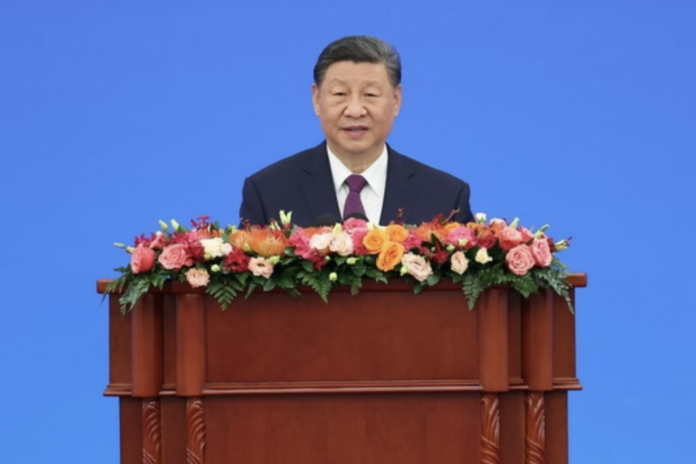BEIJING, June 28 – The Five Principles of Peaceful Coexistence were proposed 70 years ago.
Having emerged in a complex historical context, the five principles have been gradually accepted by countries worldwide and become fundamental norms for maintaining international peace and security and promoting friendly relations among nations.
At a commemorative conference marking 70 years of the principles, held by China on Friday, Chinese President Xi Jinping called for the principles to be carried forward to build a community with a shared future for mankind and provide a strong driving force for human progress.
In 1954, then Chinese Premier Zhou Enlai put forth in full the Five Principles of Peaceful Coexistence for the first time – mutual respect for sovereignty and territorial integrity, mutual non-aggression, non-interference in each other’s internal affairs, equality and mutual benefit, and peaceful coexistence.
Later, these principles served as guidelines for countries with different historical and cultural backgrounds, social systems and national conditions to handle their interrelations.
Noting the five principles have withstood the test of international vicissitudes, Xi said in the speech at Friday’s conference that 70 years on, China has answered the call of the times by proposing a community with a shared future for mankind.
The Chinese president said that the Vision of Building a Community with a Shared Future for Mankind, carrying forward the spirit of the five principles, is the most effective way to sustain, promote and upgrade these principles, demonstrating China’s firm resolve to follow the path of peaceful development.
China is the only country in the world that has incorporated peaceful development in its Constitution, and the only country among the five nuclear-weapon states to pledge no first use of nuclear weapons.
In April 2022, China proposed the Global Security Initiative to create a new path to security featuring dialogue over confrontation, partnership over alliance, and win-win over zero-sum. Under its guidance, the country released papers on its position on resolving the Ukraine crisis and the Palestinian-Israeli conflict, respectively, urging political settlement and diplomatic mediation.
The five principles were initiated with the purpose of protecting the interests and pursuits of small and weak countries from power politics. As the international order is being rebuilt based on South-South cooperation, the five principles are gaining ground and guiding solidarity and collaboration among Global South countries.
Under the China-proposed Belt and Road Initiative (BRI), many participating countries have reinforced their capacity of development through cooperating with China on fields including transportation, agriculture, energy and communication.
This is demonstrated by BRI landmark projects such as the China-Laos Railway which turned landlocked Laos into a land transport hub, Kenya’s Mombasa-Nairobi Railway which contributes two percent to the African nation’s economic growth, and Indonesia’s Jakarta-Bandung High-Speed Railway, the first high-speed railway in Southeast Asia.
In the speech, Xi put forward a series of suggestions to better support Global South cooperation, such as providing 100,000 training opportunities to Global South countries in the coming five years, discussing free trade arrangements with more Global South countries, and welcoming more Global South countries to join the Initiative on International Trade and Economic Cooperation Framework for Digital Economy and Green Development.
He noted that China’s imports from fellow developing countries are expected to exceed $8 trillion between now and 2030.
“Standing at a new historical starting point, the Global South should be more open and more inclusive, and join hands together to take the lead in building a community with a shared future for mankind,” said the Chinese president.
















